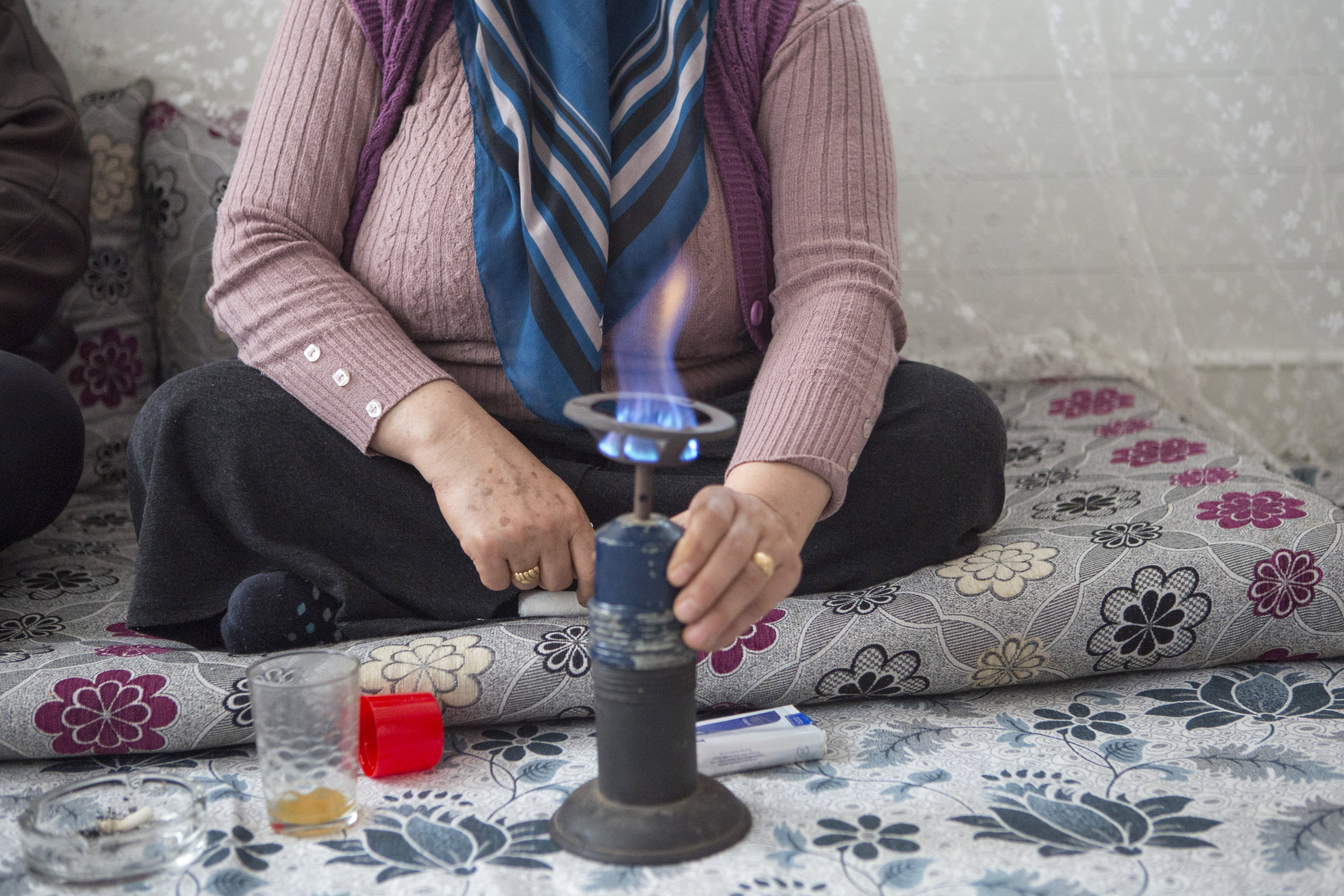ELIF
We met Elif through friends working with an international NGO helping victims of trauma. Very young, in her early 20s, with fiery eyes that moved almost constantly, we first spoke in a café on Istiklal Caddesi. In the company of a colleague who translated into English for us, she explained that she, along with her mother and sisters, had come to Istanbul from Syria almost 3 years earlier.
When asked about her brothers, she replied, “My brothers do not exist”. The women of the family had traveled alone and her father had joined them once they had become reasonably settled in Istanbul. Elif had taught herself Turkish and was working as an Arabic-Turkish translator for trauma victims.
Elif told us we could come visit her and her parents in the area near the airport where they, along with many other refugees, were living. When we arrived at the home she was there, along with her mother and father. Her father seemed quite uneasy at our presence, and made it clear that he would be in the room for the conversation, which changed the nature of our interaction completely. While she had been quite talkative in our first meeting, here in the room with her parents Elif barely spoke, bringing us tea and water and clinging to the corners of the room.
Our translator, another young Syrian woman refugee, asked Elif’s mother questions about their life, and Elif’s father mostly answered for her. When she did speak, she told us that they do not intend to stay in Turkey, that all they can think of is returning to Syria. Elif’s father had a litany of complaints about living in Turkey—he was concerned that the society was too liberal, too permissive. Elif’s mother spoke of her garden, her vegetables, how the food in Turkey has no taste compared to the vegetables they grew back home.
The husband and wife were living in a suspended reality, spending their days inside the home with no motivation towards acclimatization to a new society, and holding out for the day when they might return to Syria. When asked about what provides them comfort—faith, or community, or other Syrian people they might have known in Aleppo, the parents emphasized that nothing gives them a sense of hope—they are at the zero point. Two of their daughters, Elif and her sister, work and provide the only income for the family. The mother rarely leaves the home, and it appears she is too depressed to make an effort to connect with others.
One moment which shifted the energy in the room came toward the end of our visit, when Elif’s father brought out his prized possessions, two cockatiels. He took them from their cage, and his face lit up with hope and joy as he let them free to fly around the room. This simple pleasure, this glimmer of delight in his face, almost broke the tension that had set the tone up until then.
Although we began our work in Istanbul hoping to connect with more Syrian refugees, we learned something very important from this meeting with Elif and her parents. Many of the Syrian refugees seemed to be in the midst of their displacement, making it difficult for them to speak of a future, or to find a place of acceptance of their current status and situation. This is not to say that there aren’t a significant number of refugees who have made interesting and successful efforts to learn Turkish language and to engage in Turkish society—quite the opposite, in fact, and we met with many artists in particular who had created wonderful community gathering spaces, such as Art Here Istanbul and Pages Bookstore.
After the interview with Elif and her family, however, we decided to suspend our efforts to talk to more refugees, and to avoid the risk of projecting our desired outcome onto a conversation and a vulnerable community that was still very much in flux.







